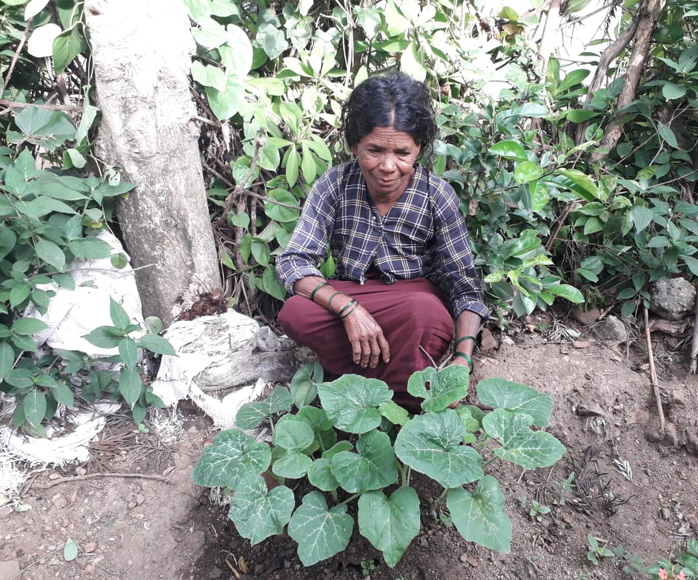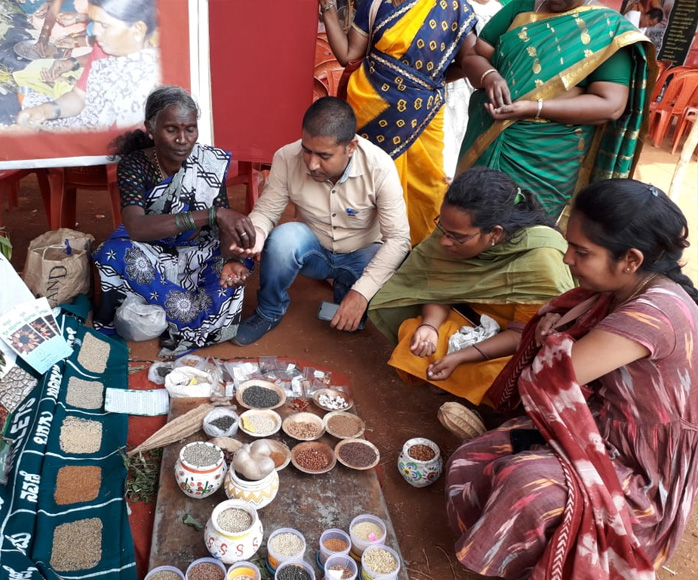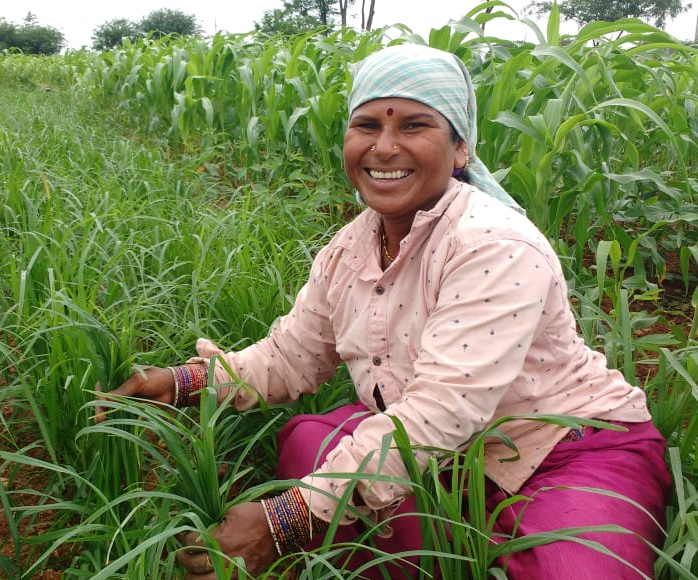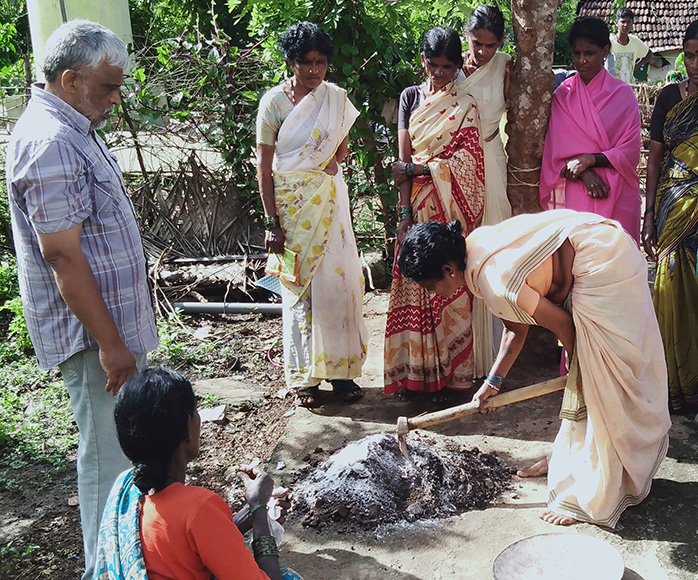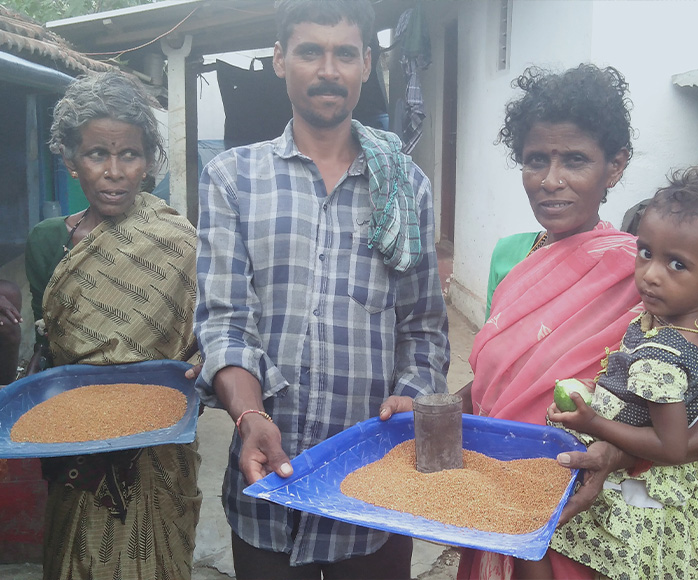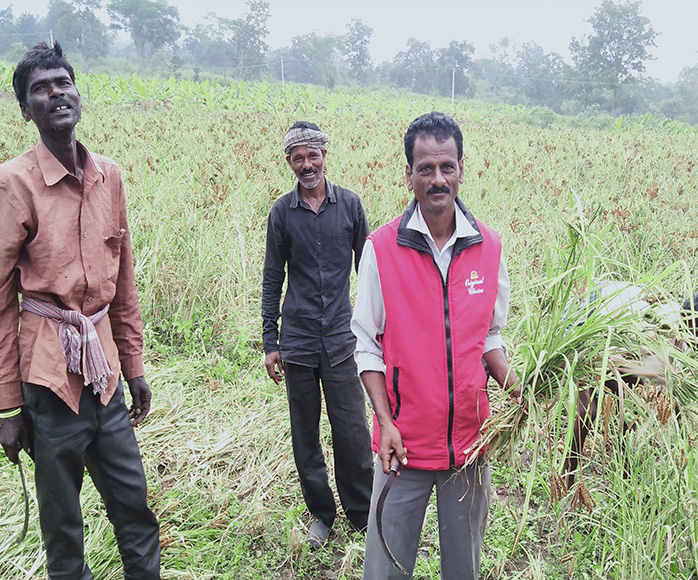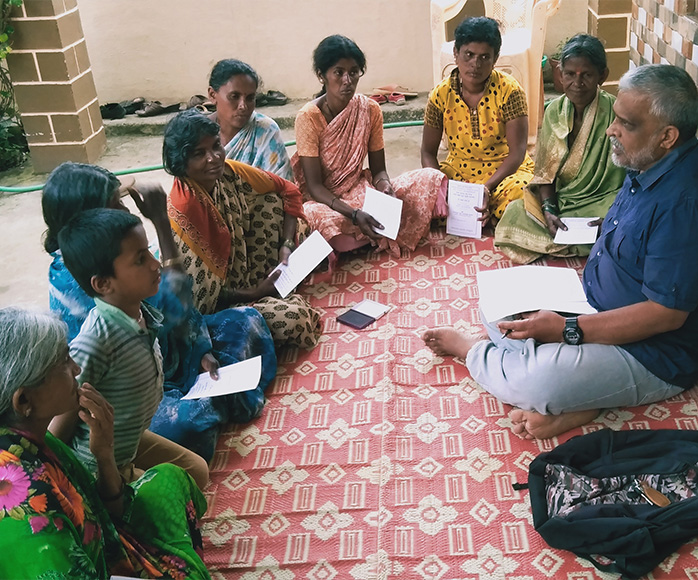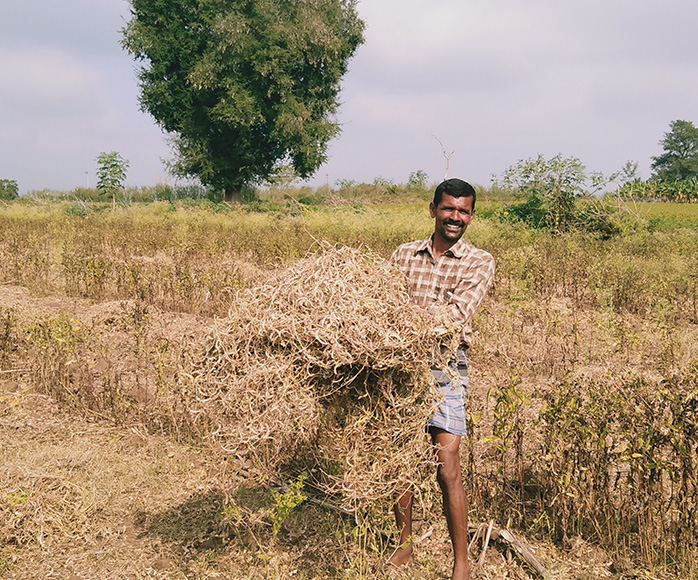What can be done
To begin with we do not have to reinvent the wheel. Much good work has already been done in areas of sustainable agriculture (particularly dry land agriculture), water conservation and livestock management. The SRI method of cultivation has improved yields and significantly reduced water consumption. Various types of organic inputs like ‘jivaamrutham’ have proved effective to replace chemical fertilisers. Multi-cropping has served to increase the productivity of the land, besides helping to withstand crop failures.
As far as energy requirements are concerned, there have been efforts at bio-gas production in many parts of the country. In addition the propagation of smokeless chulas/stoves has shown that firewood use can be reduced by as much as 40%. Growing trees along farm boundaries has served to simultaneously increase firewood production and green manure requirements.
With considerable awareness of the high nutrient value of millets, there have also been efforts to propagate the consumption of millets and include them in the public distribution system. Significantly, the growing of millets consume much less water than rice or wheat, which take 1000 tonnes of water to produce one tonne of grain.
But against all these efforts we have political pressures to promote industrial agriculture, displace peasants from their land, and promote cash crops like sugarcane, ginger, groundnut and rubber to the detriment of growing ragi, other millets, rice, wheat and varieties of vegetables and tubers.
Much of what has been outlined above has to be continued now on a war footing.
Pipal Tree collaborates with likeminded farmers, rural civil society organisations and agricultural research centres to promote sustainable agricultural practices in South Asia and other parts of the world.
Pipal Tree organises regular training sessions, campaigns and network meetings to promote the goals of food and livelihood security in the context of climate change.
In addition Pipal Tree is working on best adaptation practices in the context of climate change.
The Millet Sisters Programme
The programme is intended to strengthen the poor and marginalised women communities growing millets in H. D. Kote, Mysore District and acknowledge their right to nutritious food, sustainable livelihood, dignity, health and cultural heritage.
At H.D.Kote taluk of Mysore district, a rain fed area, Pipal Tree works in several adivasi hamlets and Dalit villages with small and marginal women farmer families.
In these areas, the monsoon begins at the end of March (Rabi sowing season). Since we receive rainfall during the monsoon beginning at the end of March we promote ragi as the baseline crop, intercropping it with pulses and oil seeds and fodder for livestock. Hence, a total of 193 millet sisters cultivate 194.20 acres of land. They also exchange seeds, agriculture tools and share agricultural labour.
Before the intervention of Pipal Tree, they were accustomed to growing commercial crops with the application of excessive chemical fertilizers. The land was slowly losing fertility and turning barren. Earlier, families had insufficient ragi for consumption and little fodder for their livestock. They were spending money to purchase these items. After Pipal Tree’s intervention the yield improved considerably. Pipal Tree also organised training programmes for the women farmers.
It has been noticed that on an average, the ragi growing areas of the millet sisters have extended exponentially from an original 10 guntas to 2 acres. They produce their own organic and liquid compost from agricultural waste and cow dung. Due to these organic practices, the yield from ragi based mixed cropping has increased. Plant based liquids are used as natural pesticides to prevent pest attacks and diseases in pulse crops. Adivasi communities now have seed banks with different varieties of seeds for sowing. Millet sisters multiply these seeds and prioritise them for the sowing needs of the season with the guideless from experts provided by Pipal Tree.
